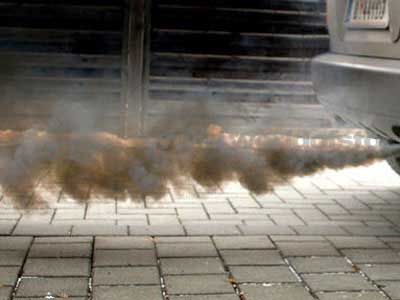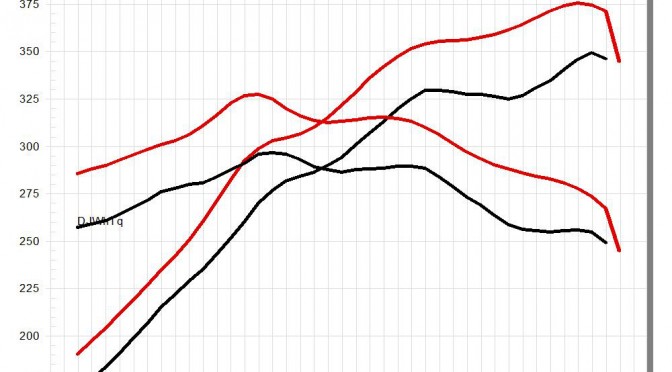When one purchases a vehicle, they likely expect engine ECUs to be optimally mapped prior to sale. While they are typically very well mapped, it is subjective whether or not it is done optimally.
In this article, I will look at engine/ECU remapping and chipping and the use of tuning boxes. I will explain why remapping works and, in most cases, why it is safe.
With most manufacturing, compromises have to be made. ECU maps are no different. Yes, manufacturers invest a great deal of time in engine tuning and testing in the harshest climates. However, tuning criteria are designed around extremes that do not necessarily fit the requirements of the average customer or where the vehicle will be used.
Manufacturers must adhere to and comply with various legislative constraints surrounding emissions and other parameters set by the different governing bodies. As a result, this may affect the quality of factory ECU maps regarding available performance and/or MPG.
Many manufacturers produce vehicles in their range that, to some degree, compete with each other and, in some cases, even share the same engine. For example, a VW Golf may share the same engine as a VW Polo or a Porsche Boxter competing with the Porsche 911. The point is that it would be marketing suicide for a Porsche 911 to be considered slower than its younger brother. As a result, some engines are intentionally detuned or, let’s say, not tuned to their full potential.
Furthermore, manufacturers are obligated to tune vehicles for wildly varying conditions, i.e., -40 to +130 degrees or very high altitudes where the air is much thinner. This is one of the reasons why engines run rich from the factory. It accommodates dramatic climatic conditions that the average driver will never see. Even with the latest technology in fuel and ignition control, compromises on engine tune still have to be made just in case the vehicle is used in such conditions.
Vehicles need to survive the factory warranty period without fault. For example, it’s not uncommon to find an engine that is detuned for torque output to ensure that the drivetrain doesn’t fail. This begs the question: Why would anyone want to remap/chip their vehicle if there is an increased risk of a component failure?
Well, here is the point I am trying to make here. Car manufacturers must tune vehicles to cater to mechanically unsympathetic customers! This is very important. Drivetrains or engines (as an example) can fail when they are abused or raced from cold. It is this type of customer and not your average enthusiast that manufacturers are trying to protect themselves against, at least within the factory warranty period.
Furthermore, fuel quality is not guaranteed. Customers embracing remaps are more inclined to use higher-quality branded fuels and/or fuel conditioners, unlike the average user. Manufacturers have little control over this, so engines are tuned accordingly and with a little to spare regarding turbo pressure, air/fuel ratio, ignition timing, etc.
A combination of the above is why we see so many forced induction engines running rich from the factory. This and all of the above give reputable tuners the opportunity to liberate additional performance safely and improve MPG from engines under certain conditions.
If in doubt, stick with reputable tuners and tuning box manufacturers, as this helps ensure you receive a well-developed tune.
Also, bear in mind that even though normally aspirated engines can be remapped, the gains are minimal when compared to forced induction engines. It would also be prudent to notify your car insurance provider.
UPDATE: We were asked how ECU remaps, or Tuning Boxes can improve MPG?
With naturally aspirated petrol engines, mpg gains are marginal at best. Minor adjustments can be made to ignition timing and air/fuel ratios, but both power and mpg gains are minimal. This is the case with virtually all non-forced induction engines.
With turbo or supercharged petrol engines, power gains are usually very good with tangible but small MPG gains. MPG gains are two-fold on forced induction petrol engines. Many turbocharged engines run very rich from the factory under acceleration (open loop lambda). By carefully leaning out the air/fuel mixture under open loop conditions, fuel consumption can be reduced. This is more difficult with more modern engines that utilise wideband lambda technology. That said, most gains (if any) are achieved by improving the spread of torque across the rev range or, in particular, lowering it. If more torque is available lower in the rev range, less throttle is required to achieve the same level of accelerative effort. Of course, more fuel may be required to achieve the additional torque but lowering engine RPM more than compensates for this. And this is where diesel engines excel…
Turbo diesel engines – excellent power (torque) gains and potential mpg gains. Most mpg gains are achieved in turbo diesel engines by using the principle described above – making more torque available lower in the rev range. If you used to use 40% throttle but now only have to use 35% throttle to achieve the same accelerative effort, then you will most likely save fuel once the novelty of the extra power has worn off!
I hope that helps.




 categories
categories